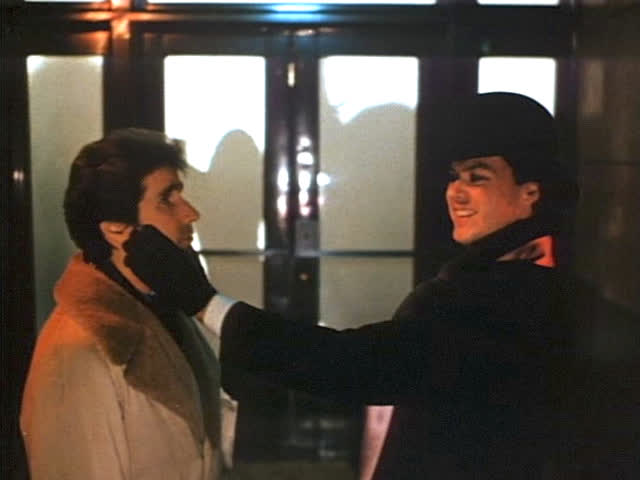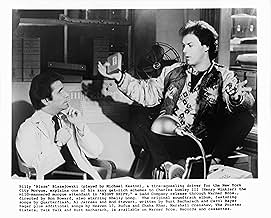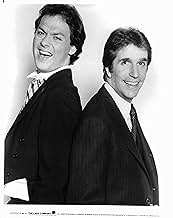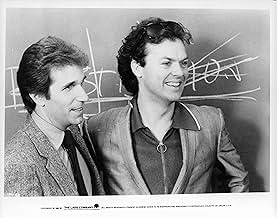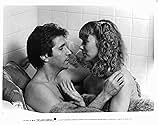Un asistente de morgue es convencido para que dirija un burdel en su lugar de trabajo después de que un proxeneta es enviado allí. Sin embargo, los asesinos del proxeneta no ven muy bien el ... Leer todoUn asistente de morgue es convencido para que dirija un burdel en su lugar de trabajo después de que un proxeneta es enviado allí. Sin embargo, los asesinos del proxeneta no ven muy bien el "negocio", ni tampoco el dueño de la morgue.Un asistente de morgue es convencido para que dirija un burdel en su lugar de trabajo después de que un proxeneta es enviado allí. Sin embargo, los asesinos del proxeneta no ven muy bien el "negocio", ni tampoco el dueño de la morgue.
- Premios
- 1 premio ganado y 1 nominación en total
Bobby Di Cicco
- Leonard Carbone
- (as Bobby DiCicco)
Corki Grazer
- Sylvia
- (as Corki Corman)
Jaid Barrymore
- Joyce
- (as Ildiko Jaid)
- Dirección
- Guionistas
- Todo el elenco y el equipo
- Producción, taquilla y más en IMDbPro
Argumento
¿Sabías que…?
- TriviaFirst major Hollywood studio picture directed by Ron Howard.
- ErroresWhen Bill is listening over and over to the tape recording of Chuck saying how much he wishes Bill would shut up, the tape keeps rewinding back, but Bill's fingers don't ever move until he finally shuts off the tape machine.
- Bandas sonorasNight Shift
Music and Lyrics by Burt Bacharach, Carole Bayer Sager, Marv Ross
Produced by John Boylan
Performed by Quarterflash
Opinión destacada
... well actually several of them are. The film is based on a true story of a couple of morgue employees caught running a brothel out of the morgue at night.
You have Michael Keaton in his breakout role acting like...well..Michael Keaton, at least pre "Clean and Sober" Michael Keaton, with his smart remarks and cheery yet loser persona. You've got Henry Winkler as a guy who just lets people walk on him to the point that he's engaged to a woman he really doesn't love because she is there, and just takes it when he's moved from his day post at the morgue to the night shift with Keaton's Bill "Blaze" Blazejowski. Winker's character, Chuck, got to this sad state of affairs when he had a nervous breakdown working on Wall Street, even though he is a talented investor. Since then he's decided the best way to get through life is keep his head down and keep a low profile.
But then his night shift brings a little sunshine his way in the person of prostitute Belinda (Shelley Long), who is getting home about the time that Chuck does, and they begin to have breakfast together and get to know each other. When Belinda is injured by a client because she doesn't have a pimp, Bill talks Chuck into letting Belinda and her friends work for them, and Chuck agrees to invest the girls' money so they'll have a nest egg.
Eventually Chuck and Belinda fall in love, with Chuck assuming Belinda will quit prostitution. Belinda asks the pertinent question - "And do what?". She asks it tearfully, because of course she doesn't like this life, we really never get any background as to how she got here, but future employers would want to know what she was doing with this big blank space on her resume and she knows she has no acceptable answer.
The whole situation comes to a head when other pimps don't care for Bill and Chuck cutting in on their territory. And then there is the little matter of undercover cops. I'll let you watch and see how this all works out.
This would probably just be a six if it weren't for the important place it holds in film history. It is the first feature film directed by Ron Howard at only age 28, and he did a very able job his first time out. It boosted the careers of both Michael Keaton and Shelley Long, who was less than a month away from beginning her star making role on Cheers. And then there is the film's theme song "That's What Friends are For" that was rerecorded in 1985, became a hit, and whose proceeds went to benefit the American Foundation for AIDS.
And what of Henry Winkler who was top billed here? Well, even though he was nominated for awards for this performance, it was pretty much downhill from here professionally. Since 1973 Winkler had built the reputation as the ultimate Eisenhower era alpha male - Fonzie - on the long running TV show "Happy Days". He was a cross between Brando and Elvis. People stepped out of his way when he walked down the street, and he would snap his fingers and several beautiful girls would come running just to be on his arm. A great performance as a man who is a walking doormat through most of the film does not mean that it enlarged his fan base.
I'd say watch it for its place in film history for all the reasons I gave. Even if you weren't alive at the time, the film is at least mildly amusing. Also watch out for cameos by Richard Belzer (Munch on Homicide and then Special Victims Unit), Kevin Costner, and of course Clint Howard who I don't think ever got an acting job without big brother's help, with the exception of maybe his part on TV show Gentle Ben.
You have Michael Keaton in his breakout role acting like...well..Michael Keaton, at least pre "Clean and Sober" Michael Keaton, with his smart remarks and cheery yet loser persona. You've got Henry Winkler as a guy who just lets people walk on him to the point that he's engaged to a woman he really doesn't love because she is there, and just takes it when he's moved from his day post at the morgue to the night shift with Keaton's Bill "Blaze" Blazejowski. Winker's character, Chuck, got to this sad state of affairs when he had a nervous breakdown working on Wall Street, even though he is a talented investor. Since then he's decided the best way to get through life is keep his head down and keep a low profile.
But then his night shift brings a little sunshine his way in the person of prostitute Belinda (Shelley Long), who is getting home about the time that Chuck does, and they begin to have breakfast together and get to know each other. When Belinda is injured by a client because she doesn't have a pimp, Bill talks Chuck into letting Belinda and her friends work for them, and Chuck agrees to invest the girls' money so they'll have a nest egg.
Eventually Chuck and Belinda fall in love, with Chuck assuming Belinda will quit prostitution. Belinda asks the pertinent question - "And do what?". She asks it tearfully, because of course she doesn't like this life, we really never get any background as to how she got here, but future employers would want to know what she was doing with this big blank space on her resume and she knows she has no acceptable answer.
The whole situation comes to a head when other pimps don't care for Bill and Chuck cutting in on their territory. And then there is the little matter of undercover cops. I'll let you watch and see how this all works out.
This would probably just be a six if it weren't for the important place it holds in film history. It is the first feature film directed by Ron Howard at only age 28, and he did a very able job his first time out. It boosted the careers of both Michael Keaton and Shelley Long, who was less than a month away from beginning her star making role on Cheers. And then there is the film's theme song "That's What Friends are For" that was rerecorded in 1985, became a hit, and whose proceeds went to benefit the American Foundation for AIDS.
And what of Henry Winkler who was top billed here? Well, even though he was nominated for awards for this performance, it was pretty much downhill from here professionally. Since 1973 Winkler had built the reputation as the ultimate Eisenhower era alpha male - Fonzie - on the long running TV show "Happy Days". He was a cross between Brando and Elvis. People stepped out of his way when he walked down the street, and he would snap his fingers and several beautiful girls would come running just to be on his arm. A great performance as a man who is a walking doormat through most of the film does not mean that it enlarged his fan base.
I'd say watch it for its place in film history for all the reasons I gave. Even if you weren't alive at the time, the film is at least mildly amusing. Also watch out for cameos by Richard Belzer (Munch on Homicide and then Special Victims Unit), Kevin Costner, and of course Clint Howard who I don't think ever got an acting job without big brother's help, with the exception of maybe his part on TV show Gentle Ben.
- AlsExGal
- 23 dic 2017
- Enlace permanente
Selecciones populares
Inicia sesión para calificar y agrega a la lista de videos para obtener recomendaciones personalizadas
- How long is Night Shift?Con tecnología de Alexa
Detalles
- Fecha de lanzamiento
- País de origen
- Idioma
- También se conoce como
- Night Shift
- Locaciones de filmación
- Pino & Santo's Hairstyling, 68-07 Fresh Pond Road, Ridgewood, Queens, Nueva York, Nueva York, Estados Unidos(Chuck is getting his haircut while Bill sneaks up with a newspaper article.)
- Productoras
- Ver más créditos de la compañía en IMDbPro
Taquilla
- Presupuesto
- USD 8,100,000 (estimado)
- Total en EE. UU. y Canadá
- USD 21,095,638
- Fin de semana de estreno en EE. UU. y Canadá
- USD 2,539,633
- 1 ago 1982
- Total a nivel mundial
- USD 21,095,638
- Tiempo de ejecución1 hora 46 minutos
- Color
- Mezcla de sonido
- Relación de aspecto
- 1.85 : 1
Contribuir a esta página
Sugiere una edición o agrega el contenido que falta

Principales brechas de datos
What is the German language plot outline for Servicio de noche (1982)?
Responda
